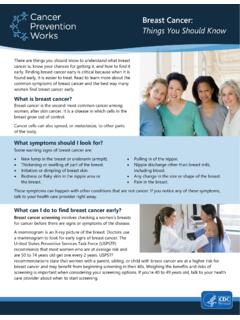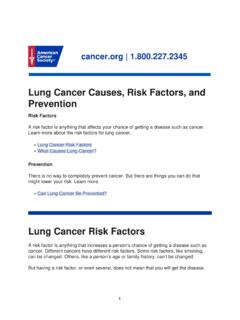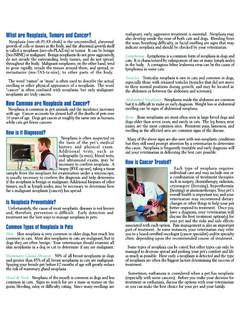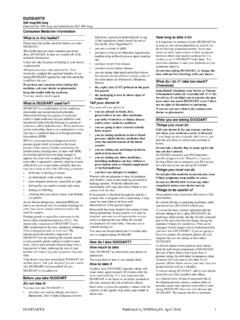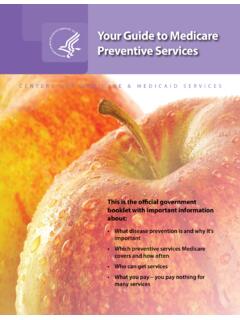Breast Cancer Things You Should Know
Found 9 free book(s)HCF Hospital Bronze Plus - HCF Health Insurance
www.hcf.com.auBefore you go to hospital, you should ask your doctors, hospital and health insurer about ... Breast surgery (medically necessary) e.g. breast lesions, breast tumours, asymmetry due to breast cancer surgery and gynecomastia ... THINGS YOU NEED TO KNOW HOSPITAL WAITING PERIODS 1 DAY Emergency ambulance. 2 MONTHS
Breast Cancer: Things You Should Know
www.cdc.govBreast Cancer: Things You Should Know There are things you should know to understand what breast cancer is, know your chances for getting it, and how to find it early. Finding breast cancer early is critical because when it is found early, it is easier to treat. Read to learn more about the common symptoms of breast cancer and the best way many
Lung Cancer Causes, Risk Factors, and Prevention
www.cancer.orgAug 27, 2018 · breast cancer13. Women who have radiation therapy to the breast after a lumpectomy do not appear to have a higher than expected risk of lung cancer. Air pollution In cities, air pollution (especially near heavily trafficked roads) appears to raise the risk ... is needed to know the cancer risks from smoking marijuana. E-cigarettes 5
What are Neoplasia, Tumors and Cancer?
publichealth.lacounty.govdogs they are often benign. Your veterinarian should examine all skin neoplasms in a dog or cat to determine if any are malignant. Mammary Gland (Breast) - 50% of all breast neoplasms in dogs and greater than 85% of all breast neoplasms in cats are malignant. Spaying your female pet before 12 months of age will greatly reduce
DUODART® 500 mcg/400 mcg - NPS MedicineWise
www.nps.org.au• breast swelling or tenderness. If this becomes troublesome or if you notice breast lumps or nipple discharge you should talk to your doctor about these changes as these may be signs of a serious condition, such a breast cancer • dizziness • difficulty in sleeping (insomnia) The following uncommon side effects have been reported:
Your guide to Medicare preventive services.
www.medicare.govYou pay nothing for the test if the doctor accepts assignment. Am I at risk for breast cancer? Your risk of developing breast cancer increases if any of these are true: • You had breast cancer in the past. • You have a family history of breast cancer (like a mother, sister, daughter, or 2 or more close relatives who’ve had breast cancer).
Inside Knowledge 2018 Cervical Cancer Factsheet
www.cdc.govIf you have any of these signs, see your doctor. They may be caused by something other than cancer, but the only way to know is to see your doctor. CERVICAL CANCER About Gynecologic Cancer Fallopian Tube Ovary Uterus Cervix Vagina Vulva cdc.gov/cancer/knowledge 800-CDC-INFO. Are there tests that can prevent cervical cancer or find it early?
Chemicals, Cancer, and You
www.atsdr.cdc.gov•Genetics: Your family history may put you at risk for cancer. If you or someone in your family had a certain type of cancer, you may be more at risk for that type of cancer. Genetics play a large role for many cancers, such as breast cancer and colon cancer. •Behaviors: Tobacco use and exposure to the sun or
Breast Cancer Fact Sheet - American Cancer Society
www.cancer.orgBreast Cancer Fact Sheet Risk Factors Risk factors for breast cancer that you cannot change include: Being born female This is the main risk factor for breast cancer. But men can get breast cancer, too. Getting older As a person gets older, their risk of breast cancer goes up. Most breast cancers are found in women age 55 or older.

